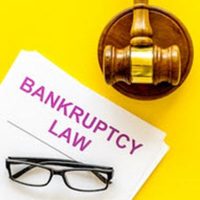4 Benefits of Filing for Bankruptcy

If you are feeling overwhelmed with debt, you have several options. For instance, you can negotiate with your creditors and agree on how to repay your debts. Debt consolidation is another option you can consider if you are struggling to repay your debts. With this process, you take out a new loan to pay off other existing loans. When you combine several debts into one larger loan, you may be able to obtain more favorable payoff terms. Another option you have if you are struggling with debt is filing for bankruptcy. Bankruptcy is one of the most valuable protections afforded to Americans. In fact, bankruptcy is a constitutional right. According to statistics from the Administrative Office of the U.S. Courts, in 2022, there were 387,721 bankruptcy filings. Of the 387,721 bankruptcies filed in 2022, 374,240 were non-business or individual filings. Indeed, bankruptcy filing is a serious decision that should not be made without consulting a professional. However, there are several benefits of filing for bankruptcy. Below, the Lehighton & Carbon county bankruptcy attorneys at Adam R. Weaver, Esq., share some of the main benefits of filing for bankruptcy.
#1: The Automatic Stay
One of the biggest benefits of filing for bankruptcy is the automatic stay. The automatic stay is a provision under Section 362 of the United States Bankruptcy Code. Immediately after a debtor files for a Chapter 7 or Chapter 13 bankruptcy, the automatic stay is imposed that temporarily bars creditors, collection agencies, and others from pursuing the money they are owed. The following are some of the actions automatic stay provisions protect debtors against;
- Commencing or continuing court proceedings against the debtor
- Trying to repossess collateral
- Foreclosure
- Enforcing a lien against a debtor’s property
#2: Discharge or Reorganize Your Debts
With Chapter 7 bankruptcy, all eligible unsecured debts are eliminated. Unsecured debt is money you owe to a creditor that is not tied to any collateral or property. Types of unsecured debts include medical debt, credit cards, student loans, and personal loans. On the other hand, with Chapter 13 bankruptcy, your debts are reorganized and included in a repayment plan, which allows you to pay your debts within three to five years. Any remaining covered debts are discharged at the end of the repayment plan.
#3: Emotional Relief
Filing for bankruptcy can offer you emotional relief. Often, financial problems cause distress. The fear of losing one’s possessions or paycheck can result in a person repaying their debts with everything they have. This can then lead to overworking and self-neglect. This cycle can be emotionally draining. Filing for bankruptcy can help end this cycle.
#4: Increased Credit Score
Filing for bankruptcy can result in your credit score dropping dramatically. This happens quite a lot. However, many people who file for bankruptcy already have low credit scores. If you have a low credit score, filing for bankruptcy can actually increase your credit score. Bankruptcy clears a person’s negative credit history, leaving only the bankruptcy as a negative remark.
Contact an Experienced Lehighton & Carbon County Bankruptcy Attorney
If you need more information on bankruptcy or would like to know if filing for bankruptcy is your best option, contact our experienced Lehighton & Carbon County bankruptcy attorneys at The Law Offices of Adam R. Weaver Esq.
Source:
uscourts.gov/news/2023/02/06/bankruptcy-filings-drop-63-percent
